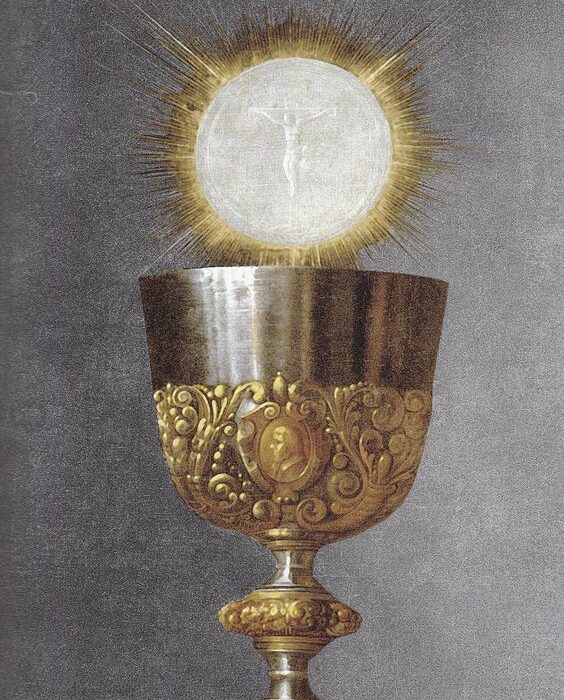Sermon for the Second Sunday of Easter
‘Unless I see in his hands the mark of the nails, and place my finger into the mark of the nails, and place my hand into his side, I will never believe.’
+INJ+
Why should he?
It is easy enough for us to judge the disciple for his lack of belief, for we know that Christ is risen. So we call him ‘doubting Thomas,’ for he demands proof. He is the object of much scorn, both in art and in literature. But what is it that he asks?
‘Unless I see in his hands the mark of the nails, and place my finger into the therein, I will never believe.’
He asks nothing more than what the other disciples already saw: the wounds on the Lord. The proof that the Lord who suffered is the Lord who lives.
We tend to think that faith is nothing more than belief in what we do not know. This is nonsense. A definition of faith concocted by atheists and revolutionaries.
Faith is trust in what we do know. When we are faithful to our spouse, it is because we know our spouse is trustworthy. When we are faithful to our friends, it is because we know they will be there.
When we are faithful to our God, it is because we know that He will raise us on the last day. This we know, and this we trust, even if all the world calls us liars and madmen.
But Thomas does not know this. He has seen his Lord murdered, and nothing else. That is what he knows. How can He have faith?
He demands exactly what he should demand, that he see the body, the body pierced and stabbed. The body of the one crucified. This he must see, for it is not enough that the spirit alone be resurrected. If God was made man, then He is one being, body and soul united, never to be separated, even as we are one being, body and soul united, even as Adam was made from the dust of the Earth, and was not alive until the Father breathed life into him.
If the Lord is raised, He is raised bodily. He is raised as man. This Thomas demands, for he is a theologian, and he will not tolerate any nonsense about a merely spiritual ‘resurrection.’ This idea, of a spiritual resurrection is popular now, because we are a people that think that body and soul have nothing to do with each other, as if the soul could do anything without a body.
But Thomas is not so foolish. For he knows that a resurrection of merely the soul is but a half resurrection, and is not anything promised by the prophets. For no one would rejoice if a mere body was raised, but not the soul, a lifeless corpse. So he will not entertain a mere soul being raised, and not the body, a wandering ghost.
But eight days have passed. The Lord enters the locked room. ‘Peace be with you.’ ‘Put your finger here, and see my hands.’ St. Thomas shudders. It is not written whether or not Thomas did touch the Lord. It is only written that he did as was commanded by Christ, ‘Do not disbelieve, but believe.’
‘Now you who have not seen,’ ‘Do you believe?’ Do you who enter this sacred place trust the cross of Christ? You must, for like St. Thomas, you touch his flesh. Like Thomas, you will feel His blood. The altar is dressed, and the Christ awaits you, to give Himself to you, the blood shed from the body, separated, as a perfect sacrifice.
‘Taste, and see that the Lord is good.’ Taste, and doubt not, but trust in the Christ who feeds you, who takes on your every woe, and hears your every prayer. That suffers with you in all your affliction, who reprimands you in all your evil. Who teaches you in all your foolishness. Who guides you to divinity.
Come today to this altar, and receive the body and blood, and look upon it, and think only:
‘My Lord and my God.’
+INJ+
Preached by Pastor Fields
Sermon Texts: Acts 5:29-42; 1 Peter 1:3-9; John 20:19-31.



